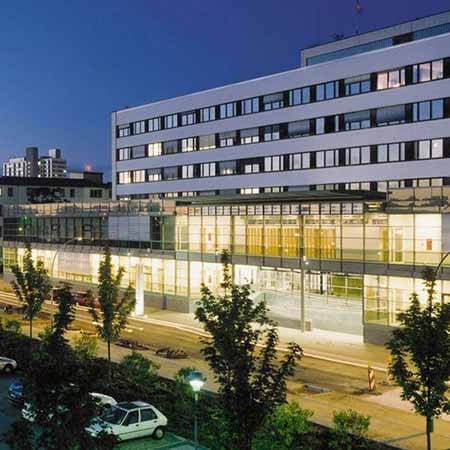About the disease
Parkinson’s disease is a chronic, progressive brain disease, first described in the beginning of nineteenth century by the English doctor-physician John Parkinson. It is also known as a tremor disease. Patients with Parkinson’s disease often suffer from uncontrolled limb tremor, muscles stiffness, impaired joint coordination and problem with speech. These signs usually develop after age of 55, although there are cases of Parkinson’s disease under the age of 55 years.
Tremor develops as a result of damage or destruction of neurons located in the black substance of a brain and accumulation of alpha-synuclein inside them. In healthy brain these nerve cells produce neurotransmitter dopamine. The function of dopamine is to ensure the normal work of mesocortical (responsible for motivation and emotional reactions), mesolimbic (responsible for feelings of pleasure, reward and desire) and nigrostriatal pathway (responsible for motor activity). In Parkinson’s disease the reduced production of dopamine interferes with the normal transmission of nerve impulses.
Several medications taken for a long time at high doses can cause Parkinson’s disease. These includes drugs for treatment of certain mental disorders, as well as anti-nausea medications, such as metoclopramide. The antiepileptic valproic acid may also cause some of the most well-known symptoms of Parkinson's disease. Parkinson’s disease may also be caused by an infectious or traumatic brain injury.
Symptoms
- Tremor of hands
- Light finger shaking
- Minor speech disorders
- Devastating mood
- Loss of vital strength
- Insomnia
Parkinson’s disease is progressive, its symptoms aggravate and worsen over time. It eventually leads to disability and total loss of motion capacity.
Tremor often starts with a slight trembling of the fingers or of even individual fingertips. In some cases tremor is accompanied by uneven movement of middle finger and thumb which looks like a person is rolling invisible pills. These symptoms may appear with other disorders of nervous system, such as discoordination. Shaking is particularly evident during the "pill rolling syndrome" which occurs mostly when the patient is stressed and devastated about something. Although tremor of limbs and joints causes considerable further inconvenience, it does not end in a total loss of vital capacity. Many patients with tremor disease suffer only from a little shaking.
Diagnosis
- There are no specific diagnostic tests for Parkinson’s disease. That is why doctor starts examination from medical history checking and excluding concomitant pathology of the brain. Then doctor proceeds to neurological examination, including cognitive tests.
- Transcranial sonography is the ultrasound technique that allows to assess the state of dopamine-producing cells.
- MRI allows to exclude not connected with Parkinson’s disease brain injuries that can also cause tremor.
- PET-scan is the most informative examination, as it reflects the functional activity of the brain cells. PET-scan can reveal the earliest stages of the disease.
Treatment
The treatment program should be individualized for each patient. The rationally selected regimen will allow to achieve good results for a long time.
- Lifestyle modification. Aerobic exercises and balance training will improve ability to walk and somewhat reduce tremor.
- Drugs intake. The most effective in patients with Parkinson’s disease medication is carbidopa-levodopa. It replaces deficiency of dopamine and restores normal work of nervous pathways. Dopamine agonists are also used. This type of drugs has different from the dopamine structure, but similar effects. Anticholinergics will help to cope with tremor, this is a symptomatic treatment.
- Deep brain stimulation (DBS) with implanted neurostimulator is the modern treatment technique, which uses neurostimulator to send electrical impulses to specific areas in the brain responsible for movement. This procedure can improve tremor and other manifestations of dyskinesia.
- Pallidotomy is a surgery during which a surgeon removes the overactive part of the brain, which lessens the tremor and eliminates rigidity.
Authors: Dr. Nadezhda Ivanisova, Dr. Sergey Pashchenko














